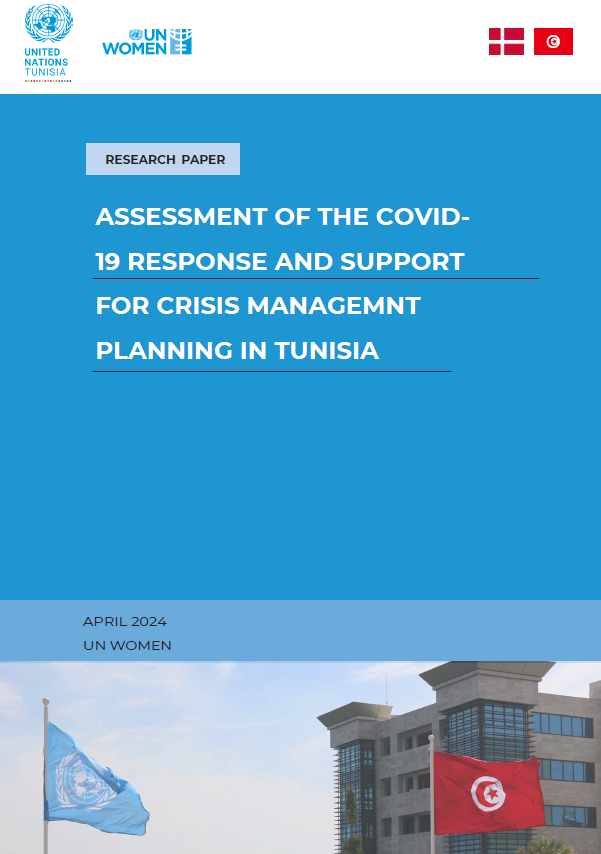
Assessment of the COVID-19 Response and Support for Crisis Management Planning in Tunisia

UN Women Tunisia has been working jointly with UNDP and WHO towards promoting women and girls’ leadership in the socio-economic and health response to COVID-19 in Tunisia. This collaborative effort aims to achieve the following outcomes:
- Increased resilience to crisis supported in local communities, especially vulnerable, marginalized and hard-to-reach women and girls to prevent and respond to COVID-19
- Marginalized and vulnerable women, young women, and girls increase their resilience and mitigate the socio-economic impact of COVID-19 including all forms of GBV
- Regional and local authorities in pilot area provide health leveraging the community awareness work
This partnership is part of a joint Dennemark-funded project entitled "Promoting the leadership of women and girls in the socio-economic and health response to COVID-19 in Tunisia", for which UN Women is responsible for the above-mentioned outcome.
This evaluation is under the responsibility of UN Women and aims to assess the COVID-19 response from a multidimensional perspective, acknowledging that crisis prevention and management should consider the various impacts of this crisis. As such, the assessment focuses on the impact of the response on healthcare, economic participation, social protection, education and GBV in two targeted governorates: Kebili and Kef.
Based on the results of the assessment, pandemic management stakeholders in Kef and Kebili, with technical support from UN Women, will draw up two local crisis response plans as a preventive measure.These plans will provide solutions targeting women, children, and elders in line with the Leave No One Behind (LNOB) approach. Subsequently, UN Women will organize capacity-building sessions for stakeholders involved in the response to COVID-19, mainly government authorities and civil society. These training efforts aim to strengthen their capacities to support the community with inclusive and gender-sensitive approaches to a situation similar to the COVID-19 pandemic.